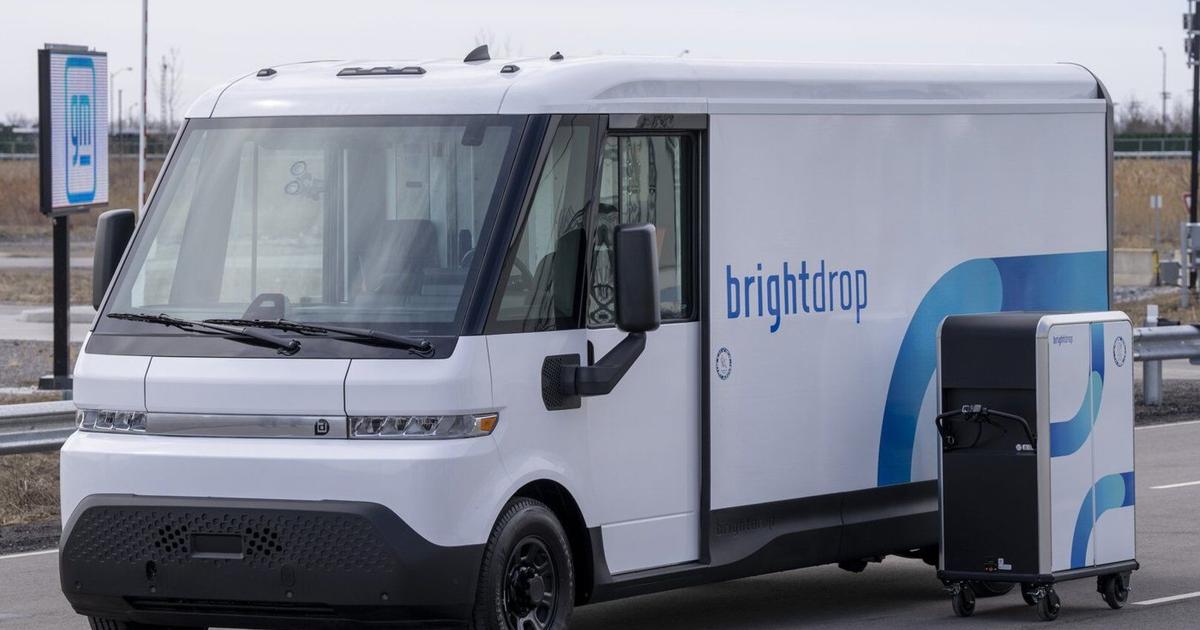The beleaguered Canadian automotive industry got another piece of bad news Tuesday as GM announced it’s halting production of its BrightDrop electric delivery van, leaving the future of 1,144 workers at its idled CAMI assembly plant — where the BrightDrop was built — up in the air.
“The decision to end production of the BrightDrop electric delivery van is driven by market demand and in no way reflects the commitment and skill of our workforce at CAMI,” said Kristian Aquilina, president and managing director of GM Canada.
“This continues to be an uncertain time for our workforce at CAMI, and we are committed to working closely with our employees, Unifor and the Canadian and Ontario governments as we evaluate next steps for the future of CAMI.”
According to union officials, CAMI’s 1,144 workers received layoff notices Tuesday.
The news comes just a week after Stellantis announced it was shifting production of the latest generation of its Jeep Compass to Illinois from Brampton, and two weeks after U.S. President Donald Trump and his commerce secretary Howard Lutnick said they were coming for Canada’s auto industry.
The BrightDrop was the sole vehicle being built in Ingersoll, Ont., which previously produced the Equinox SUV.
The plant has been idle since May, and was scheduled to resume production of the BrightDrop in November.
The news sent shock waves through the town of 14,000 people.
“It’s just devastating. This is the worst-case scenario,” said Ingersoll Mayor Brian Petrie, who was given the news by GM shortly before it became public.
“I got a call at 7 a.m., so it was a bit of notice, but it was still devastating.”
For workers who’d been eagerly anticipating the resumption of production just weeks from now, the blow was especially cruel, said Petrie.
“I know how devastating this is for people. They’ve been through hell already,” said Petrie. “It was probably only going to be 400 people going back to work at first, and now, not even that is happening. They’ve got families to feed, they’ve got mortgages.”
Ontario Premier Doug Ford vowed to hold GM to its legal commitments, and said the province would consider a lawsuit if the company steps out of line.
“If they breach a contract, we’re gonna sue them. Simple as that,” said Ford, adding that his government is going to push GM to allocate another model to the CAMI plant.
“We’re going to make sure that we get another vehicle in that area,” said Ford.
But with its sole product being eliminated permanently, the CAMI plant might never reopen, worried the head of Canada’s Automotive Parts Manufacturers’ Association.
“I think this is very likely the end of production at Ingersoll,” said APMA CEO Flavio Volpe. “GM made a bad decision when it moved production of the Equinox from Ingersoll to the U.S. five years ago. In normal times, you can fix that, but with the trade uncertainty right now, it gives the company cover to close the plant.”
The entire Canadian automotive industry is under an existential threat due to Trump’s trade policies and tariffs, said Volpe.
“We’ve been under an existential threat for a year,” said Volpe. “Now, the foundation is starting to crumble.”
In an interview, the head of Canada’s largest private sector union put it in even more apocalyptic terms.
“The foundations aren’t crumbling. They’re being blown apart by Donald Trump,” said Unifor national president Lana Payne, whose union represents the CAMI workers. “Last week, it was Brampton, this week it’s CAMI. These were the two spots we knew were vulnerable. What’s next here? January coming and GM’s getting rid of the third shift in Oshawa.”
It’s not just the automotive industry at stake, warned Payne, but Canada’s entire manufacturing industry.
“This is a president who, with his team, is systematically f—-ing destroying the Canadian industrial economy, and we better figure it out soon and fight for it, or we’re not going to have anything left,” said Payne, adding that she applauded threats by Ford and federal Industry Minister Melanie Joly to sue auto companies who don’t live up to their contractual commitments.
“Trump has put so much pressure on corporations. He’s extorting them, he is doing what he’s doing, he’s changed the rules of the game. And if we’re not willing to play by new rules, and by that I mean stop being nice, then we’re going to lose out,” Payne said.
Asked whether the Canadian industry will go the way of Australia’s now-vanished automotive assembly industry, however, Payne said she’ll keep fighting to the bitter end.
“Over my dead body,” said Payne.
In a scrum before a cabinet meeting Tuesday morning, Joly said GM’s decision to eliminate BrightDrop production was different than Stellantis’s move last week to shift Jeep Compass production to the U.S. from Brampton.
“It’s two completely different situations. Stellantis had an obligation to bring production back to the Brampton plant and they failed that obligation,” said Joly. “When it comes to GM, they decided to let go their BrightDrop, which was an EV which wasn’t doing well commercially.”
Still, Joly said, the federal government is pushing GM to give the CAMI plant another model to produce, and would hold the company to account for any support that had gone to BrightDrop production.
Aquilina insisted in a press release that GM is still committed to Canada.
“Our Canadian operations continue to be a critical part of GM and our North America business,” said Aquilina. “For more than 100 years, GM has been designing, engineering and building vehicles in Canada and we intend to keep doing so.”
With files from James Bullanoff



